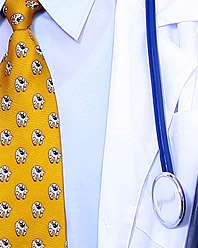
Make an Appointment
-
Clement L Trempe, MD, PC930 Commonwealth Avenue, 2a, Boston, MA 02215 map
The importance of the eye for the early detection and treatment of Alzheimer's disease. Read my Book:The End Of Alzheimer's The Brain and Beyond.2ND edition Elsevier
Clement L Trempe, MD, PC
Accepting New Patients?
No, Dr. Clement L. Trempe is not accepting new patients at this office.
Phone
Fax
(617) 587-5518
Address
930 Commonwealth Avenue, 2a, Boston, MA 02215
Office Details
Insurance Accepted
No insurance accepted.
Bio
Dr. Clement L. Trempe
"I treat the whole patient. No disease happens in isolation, it’s all connected. The eye is a biomarker for other system-wide (systemic) diseases. My approach to macular degeneration is to evaluate the whole health of the patient, determine the causes using blood tests, and treat them. My patient often notices remarkable improvement in their vision and their general health.”
I received my MD degree from Ottawa Medical School, Canada. I conducted further studies at Harvard’s Schepens Eye Research Institute (SERI) and Massachusetts Eye and Ear Infirmary, Boston. I have been on staff at Harvard Medical School teaching hospitals since the early 1970s. I am the author of over 200 medical scientific papers.
I set out to treat eye diseases in a different way. Myself and few others recognized that a sick eye is, for the most part, in a sick body. Treat the causes of the sick body and the health of the eye will also improve. I am one of very few Ophthalmologists who take this approach. Why? Because eye doctors treat eye diseases, cardiologists treat heart diseases, neurologist treat brain diseases, and so on. These specialties seldom collaborate. Each medical discipline has its own set of diagnostics and drugs for their special ailments.
When I started diagnosing and treating “eye” patients for systemic (whole body wide) diseases, back in the 1980s, their eyes did better. In fact, they did better and stayed much better compared to people who were treated as if their eyes existed in isolation from the rest of the body. Very importantly, many patients with serious disease beyond the eye reported back to me that other conditions such as irregular heart rate, hand shaking and memory problems also improved.
I did not begin my career in medicine with the goal of helping people with Alzheimer’s disease. However I have been blessed with the opportunity to learn about disease from something far greater than a test tube in some laboratory. I learned from my patients. They dictated my career path. I am an Ophthalmologist and I believe in the Hippocratic Oath and I am true to its pledge, to do no harm and to help the body health itself.
In the 1980s I gave up my practice of treating eye diseases as diseases isolated to the eye only. Back then, surgery and laser treatment was the way to go. I soon realized that my patients with eye diseases were also sick in many other ways. I’m a doctor, so how could I ignore this fact? Can treating the eye with a laser or surgery “cure” the reason why my patients had the eye problems and were otherwise ill? Of course not. It was becoming clear, in the medical literature at the time, that neurodegenerative eye disease related to aging was the symptom of a broader condition of poor general health and the future development of Alzheimer disease and other neurodegenerative disease related to aging.
My practice changed 30 years ago to be one where I used eye diseases as a biomarker for the early detection of systemic (whole body) diseases related to aging. Any eye doctor, using simple ophthalmic instruments, can detect the early signs of neurodegenerative diseases during a routine eye examination. Just ask your doctor, at the end of your next eye examination, if you have evidence of any neurodegenerative disease in your eyes. If the answer is yes you will need further measurement of those changes using more sophisticated instrument that perform a noninvasive disease “biopsy” by simply by looking in your eyes with an Optical Coherence Tomography (OCT). Those more advanced tools are able to map tissue very precisely. We can “see” disease happening at its earliest stages. I know your cardiologist would benefit greatly in their diagnosis by opening up your chest and peering in at the tissue. Clearly you would not approve of that just for the purpose of diagnosis. However, any eye doctor can do the same thing, but non-invasively. The eye contains both blood vessels and nervous system tissue. We can “open” a window into your health by simply having you, our patients, open your eyes. We all have one circulatory system and one nervous system. What is happening in your eyes is, for the most part, the same thing that is happening in your heart and your brain. This is a much underappreciated and underutilized part of medicine.
I
Specialty
-
Ophthalmology
As an ophthalmologist in MA, Dr. Clement Trempe is trained to diagnose, treat, and manage diseases or trauma of the eye. Dr. Trempe may treat conditions such as glaucoma, corneal tumors, cataracts, retinal disorders, conjunctivitis, astigmatism and ocular tumors. Treatments may include the prescription of medication or surgeries such as corrective surgery (e.g. LASIK), cataract surgery, or glaucoma surgery.
Hospital Affiliations
- Beth Israel Deaconess Medical Center
Languages Spoken
- English
Links & Social Media
Latest Ophthalmology News
-
Another Dry Eye Harm: Slowed ReadingAmy Norton, HealthDay Reporter, Nov 20, 2018 at 2:00 PM
-
Change Within the Eye May Be Early Warning for Macular DegenerationRobert Preidt, Nov 9, 2018 at 4:00 PM
-
Smartphones, Summer Birth Could Raise Kids' Odds for NearsightednessSteven Reinberg, HealthDay Reporter, Nov 7, 2018 at 6:00 AM

